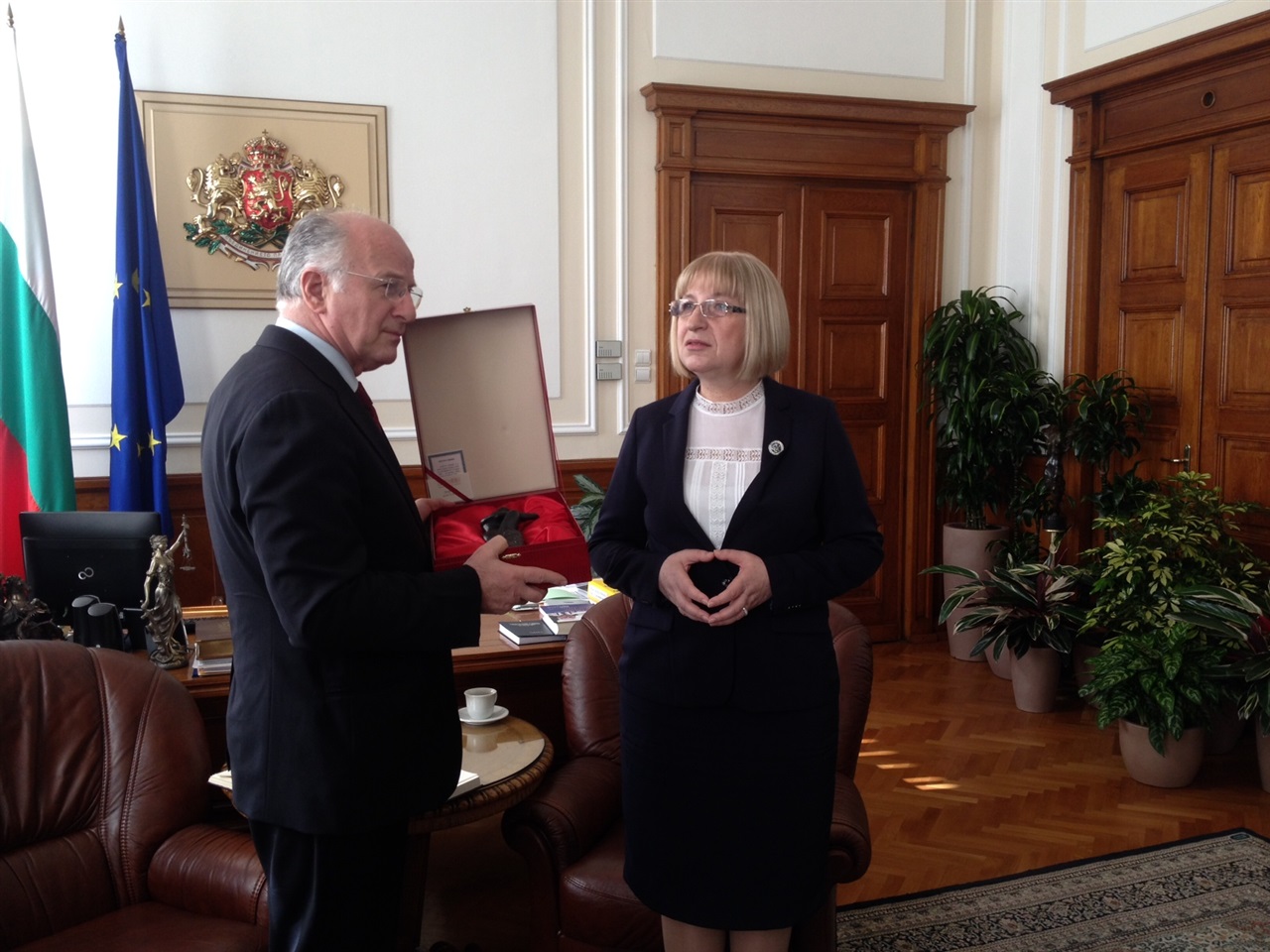
Sofia - Croatia and Bulgaria have several common interests over which they are in complete agreement - energy, the entry of both countries into the Schengen passport-free zone and the support of Croatia and Bulgaria for the accession of Southeast European countries to the European Union (EU) as the only guarantee of lasting peace in Europe, Croatian Parliament Speaker Josip Leko said after meeting with Bulgaria's senior officials in Sofia on Monday.
On the first day of an official visit to Bulgaria, Leko met with National Assembly Chair Tsetska Tsacheva, President Rosen Plevneliev and Prime Minister Bojko Borisov.
"At all three meetings, each of the officials underscored that Croatia and Bulgaria had several common interests, and one of them was definitely energy efficiency and European energy policy, as well as entry into the Schengen area and open prospects for Balkan countries to join the EU," Leko told reporters after the meetings.
As far as energy is concerned, Leko added, we agreed that diversification of gas supplies was vital to enable energy security for the EU, where both Croatia and Bulgaria can have significant roles.
With Russia backing out of the South Stream gas pipeline project, Bulgaria was compelled to consider other alternative directions and sources of gas supply. One option is to revitalise the Nabucco-West route and set up a regional hub in Bulgaria. Officials in Sofia have been heard to state that an amount of 2.2 billion euro is necessary to develop the Bulgarian gas hub. Due to the large resources required for the investment, Bulgaria has invited foreign investors, particularly those from the UK, to enhance investments into Bulgaria's energy grid.
As for Croatia's and Bulgaria's admission into the Schengen area, Leko confirmed that both sides were of the view that they meet the criteria to be part of that regime.
"We think that both countries posses elements to receive approval from EU member states to enter the Schengen area as soon as possible," Leko said.
With regard to the third issue, we agree entirely on the European prospects for Southeast European countries.
"Croatia and Bulgaria are working so that Balkan countries have open prospects for integration into the EU, which is the only guarantee for the Balkans and Southeast Europe to have lasting peace," Leko said.
"Cooperation in the Balkans is in fact cooperation through the European Union and security is the greatest if they go together into the EU and NATO," Leko added.
In addition to excellent political relations, and a long historical friendship between the two countries which has existed for 12 centuries, a key point is to strengthen economic cooperation between Croatia and Bulgaria.
The value of trade between the two countries in 2014 amounted to 138.18 million euro, of which 67 per cent related to imports to Croatia, which indicates insufficiently exploited economic potential. Bulgaria's trade with Serbia for example amounted to 800 million euro.